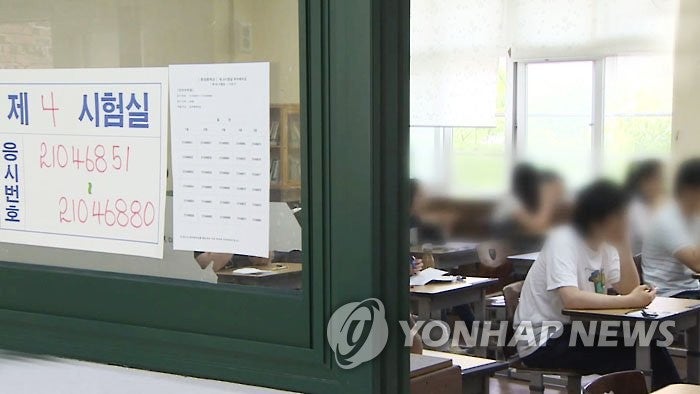
Why Recent Changes in the TOPIK Exam Matter to Foreigners in Korea
Hello, international friends! If you're planning to study or work in Korea, you might be preparing for the Test of Proficiency in Korean (TOPIK). Recent issues affecting this critical exam have raised concerns among foreign candidates. Read on to understand how this affects you.
The TOPIK is essential for many foreigners in Korea as it assesses Korean language skills, necessary for university entrance, employment, and even citizenship. Unfortunately, a recent technical glitch has disrupted exams both in South Korea and abroad. Let’s dive into the details and see how this impacts you.
🌏 What's happening in Korea? (Quick overview)
On April 22, during the sixth session of the TOPIK internet-based test (IBT), system malfunctions prevented students from taking the exam in many locations. Notably, seven countries—excluding Romania and Paraguay—reported issues due to essential computer failures. Domestically, about 10 testing sites experienced keyboard malfunctions, forcing examinees to write by hand, impairing their chances for success.
💡 Why this matters for foreigners? (Impact analysis)
This situation significantly impacts foreign candidates who rely on TOPIK scores for academic and employment opportunities in Korea. Many candidates expressed frustration over time lost and disrupted focus during the exam. The National Institute for International Education has acknowledged these problems and assured that those affected can retake the written test scheduled for April 13.
📌 How to take advantage of this? (Step-by-step guide, if applicable)
If you've been affected by this disruption, here's what you need to do:
- Keep an Eye on Updates: Stay informed through the National Institute's official channels.
- Prepare for the Retake: Use this time to refine your Korean language skills with various online resources.
- Ask for Refunds: If you choose not to take the retake, remember that you can request a refund.
🇰🇷 Understanding Korea's system (Cultural & bureaucratic insights)
The TOPIK exam is governed by the South Korean education system and plays a crucial role in assessing language proficiency for non-native speakers. It's also a critical component for various processes such as college admissions and visa applications. Understanding this architecture is essential for foreign residents who wish to navigate their life in Korea effectively.
🌟 Tips for foreigners living in Korea
Here are some useful tips for navigating unexpected situations like this one:
- Stay Connected: Join online communities or forums where fellow foreigners share experiences and advice.
- Practice Regularly: Consistent practice can help mitigate the stress of examination pressures.
- Utilize Resources: Leverage local language schools and platforms to enhance your Korean language abilities.
🔮 What's next? (Future trends & additional insights)
The National Institute for International Education has promised to thoroughly investigate the root causes of these technical failures, emphasizing their commitment to resolving such issues for future exams. With a total of 12 TOPIK sessions per year, candidates must stay informed about enhancements to ensure a smoother testing experience ahead.
🇰🇷 Learn Korean from this Article!
Improve your Korean language skills with these key phrases from the article:
🔤 Korean Phrase 1: "한국어 능력 시험"
🔤 Pronunciation: hanguk-eo neungnyeok siheom
🔤 English Translation: "Korean Language Proficiency Test"
🔤 Usage Tip: Used when referring to the TOPIK test; essential for discussing language qualifications.
🔤 Korean Phrase 2: "시험에 응시하다"
🔤 Pronunciation: siheom-e eungsi-hada
🔤 English Translation: "To take an exam"
🔤 Usage Tip: This phrase is useful when discussing exam participation in any context.
🔤 Korean Phrase 3: "문제가 발생하다"
🔤 Pronunciation: munje-ga balsaeng-hada
🔤 English Translation: "An issue occurs"
🔤 Usage Tip: This phrase is applicable when discussing problems that arise in any situation.
🙋 Essential FAQs for Foreigners
Can foreigners participate or apply?
Yes! The TOPIK is designed specifically for non-native speakers and foreigners living in Korea.
Do I need to know Korean for this?
While a basic understanding is beneficial, the exam aims to assess your proficiency, so prepare accordingly!
Where can I find official details?
Check the official website of the National Institute for International Education for the latest updates and guidelines.
As you navigate through these unexpected challenges, remember that perseverance is key. The language barrier might seem daunting, but with the right resources and support, you can overcome any obstacle in your path. Stay motivated, and best of luck with your language journey!
📱 Get the BeraKorean App & Stay Updated!
Want to improve your Korean skills and stay informed about life in Korea? Download the BeraKorean app for exclusive content:
- 📱 Android: Download on Google Play
- 🍎 iOS: Download on App Store
📺 Follow us on BeraKorean YouTube for Korean lifestyle & language content!
🌏 Visit berakorean.com for more updates, news, and insights on living in Korea.
🔗 Read the Original Korean Article
Want to dive deeper? Check out the original article here:
📢 Tags
#KoreaNews #LifeInKorea #ForeignersInKorea #KoreaOpportunities #KoreaLiving #LearnKorean #KoreanLanguage